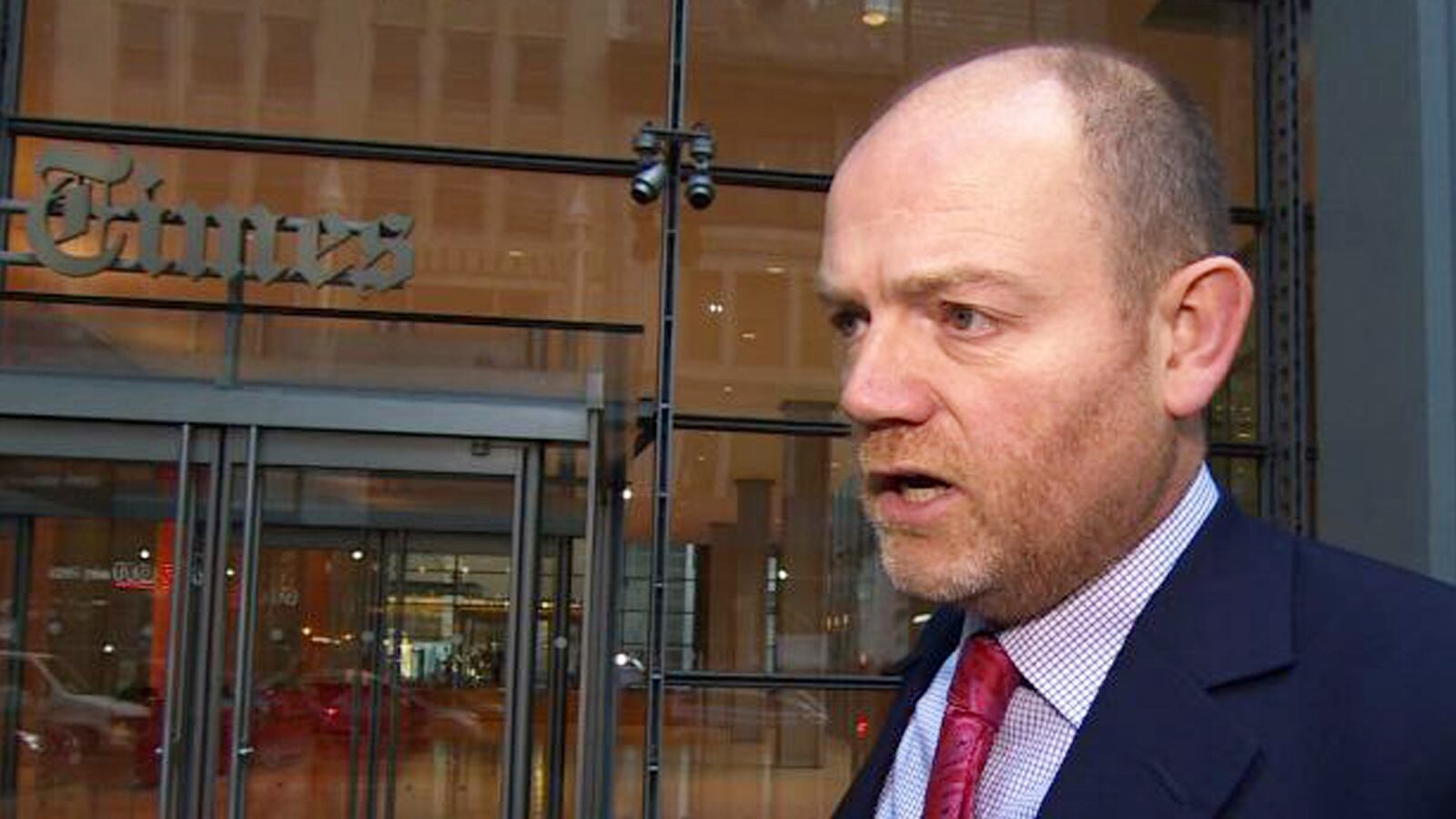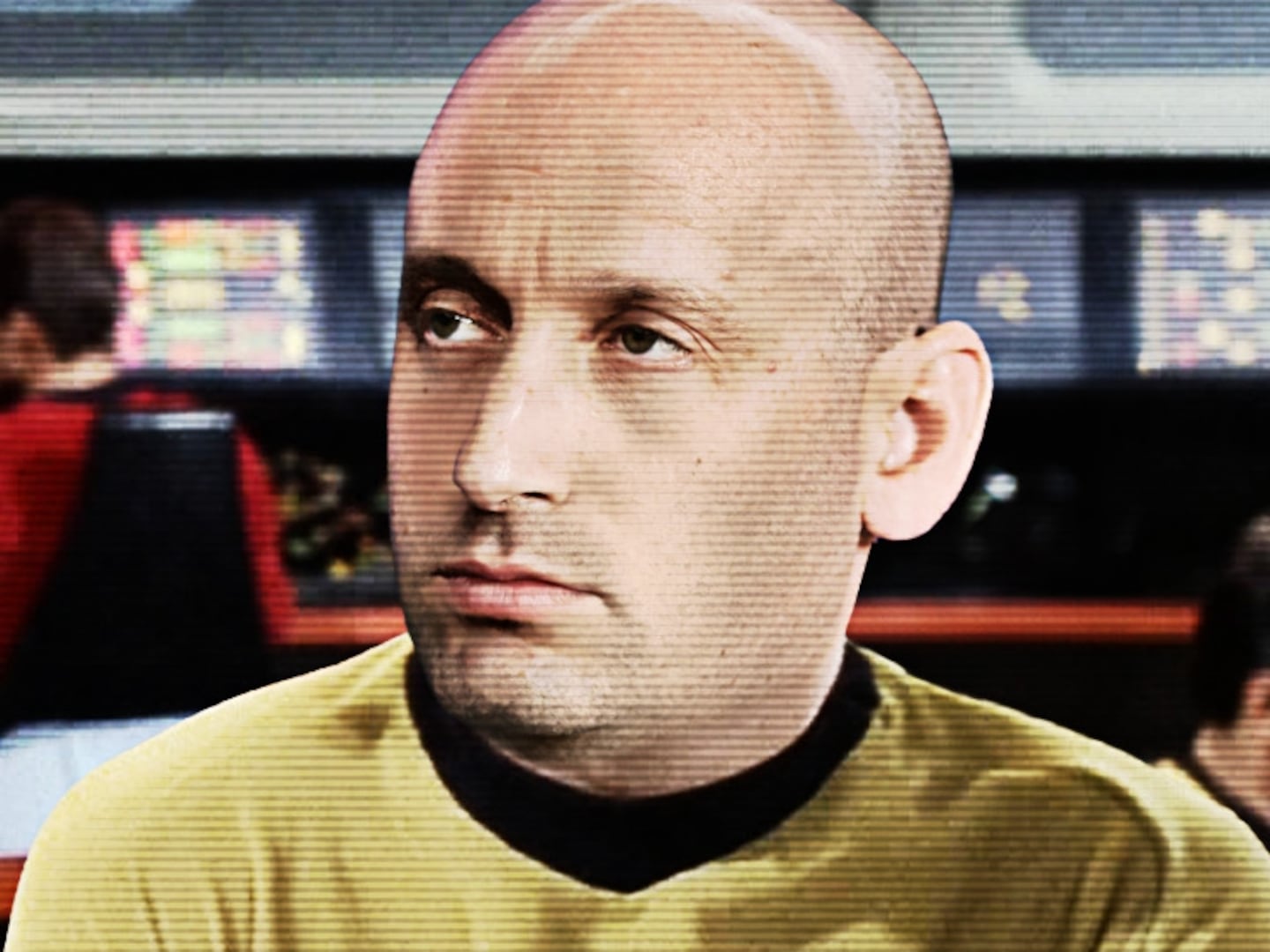
The revelation that one of Britain’s most popular TV icons and charity workers, Sir Jimmy Savile, friend to Margaret Thatcher and Prince Charles, was a “prolific predatory sex offender” who preyed on hundreds of young boys and girls during his 50-year career has damaged several key British institutions, but none more so than his main sponsor, the BBC. Because of his dire handling of the scandal, the newly appointed director-general George Entwistle resigned last year after only 54 days in the job.
But it’s the role of Entwistle’s predecessor, Mark Thompson, currently CEO of The New York Times, that is now in the spotlight thanks to the publication of transcripts from an internal BBC investigation.
Led by a former head of Sky News, the Pollard Inquiry was supposed to establish once and for all whether the BBC management had suppressed an investigation by the corporation’s flagship current-affairs program, Newsnight. Within weeks of Savile’s death in October 2011, producer Meirion Jones and reporter Liz MacKean filmed several witnesses alleging the DJ regularly used his fame to sexually abuse minors, sometimes on BBC property. But that December, the Newsnight investigation was canceled, and the BBC ran a series of Christmas tributes to Savile instead.
Consisting of interviews with the top executives involved, the transcripts released Friday show no clear-cut evidence of a cover-up, though they do reveal that executives were “queasy” about the tributes and knew of Savile’s “darker side.”
Newsnight’s well-known and outspoken presenter, Jeremy Paxman, claimed the decision to scotch the investigation must have been taken at a “corporate” level (p. 53-5), though conceded that it could have been a mindset of “self-censorship” and caution rather than a conscious policy. As an insider familiar with senior executive decisions told The Daily Beast, “it doesn’t have to be a full-blown conspiracy ... more of a nod and wink.”
But it’s the evidence of former director-general Mark Thompson that now looks most problematic. Since the scandal erupted last fall—a month or so after he left the corporation—Thompson has consistently claimed he “never heard any allegations” of sexual abuse by Savile during his eight-year tenure. As a timeline of the events makes clear, the former “editor in chief” of the BBC looks incurious at best, and even The New York Times conceded its new boss had missed key red flags in the looming scandal.
In the transcripts published Friday, Thompson’s testimony to the Pollard Inquiry is often awkward and stumbling (p90-93), especially his account of moments such as September 2011 when lawyers drafted a legal letter in response to a newspaper allegation that Savile abused minors on BBC property. “To be honest, I can’t recall reading the letter at all,” Thompson told the inquiry. “I mean it is perfectly possible the thing was handed to me and I said, ‘That’s fine, send it.’” But however vague or confusing there was never anything to flatly contradict Thompson’s account—until now.
A report in the Sunday Times by investigative journalist Miles Goslett claims that a letter has been sent to the Pollard Inquiry by lawyers representing the BBC’s head of news, Helen Boaden, alleging she “informed Thompson in a telephone call in December 2011 about the nature of the accusations against Savile.” This doesn’t square with Thompson’s account at all. As he wrote in a reply to a letter last October to a British member of parliament, Thompson discussed the canceled Newsnight probe with “the leadership of BBC News,” but they never told him “what the investigation had been about.”
Boaden’s version of events have been put to Mark Thompson and The New York Times, but at the time of publication neither has responded to requests for comment
With the reputation and leadership of two of the world’s most respected journalistic institutions on the line, the Pollard Inquiry seems to have raised as many questions as it answered. Key parts of the 3,000 pages of transcripts were also heavily redacted by lawyers representing the interested parties, leaving open of the prospect of further damaging leaks in the weeks ahead.






